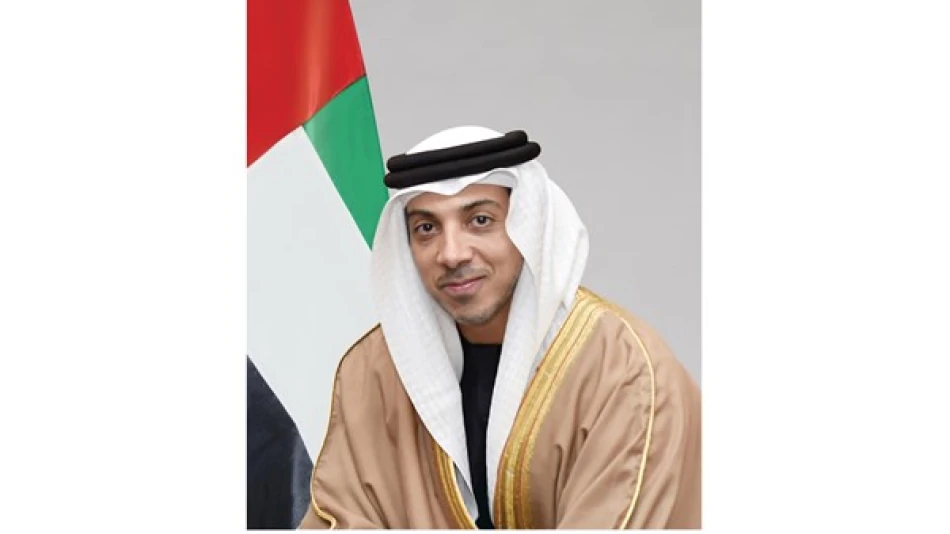
Emirati Deputy Premier Leads UAE Delegation to Crucial Gulf, Arab-Islamic Summits in Doha
UAE's Strategic Diplomatic Push: Deputy President Heads High-Level Delegation to Emergency Gulf-Arab Summit
The UAE has dispatched its most senior diplomatic delegation to Doha for emergency Gulf and Arab-Islamic summits addressing Israeli military actions, signaling the Emirates' commitment to regional stability and its growing role as a diplomatic mediator in Middle Eastern crises. The move underscores how Gulf states are increasingly coordinating responses to regional security challenges despite their complex relationships with Israel.
High-Stakes Regional Diplomacy in Motion
Sheikh Mansour bin Zayed Al Nahyan, UAE's Deputy President and Deputy Prime Minister, arrived in Qatar's capital leading a heavyweight delegation that includes Foreign Minister Sheikh Abdullah bin Zayed Al Nahyan and five other senior ministers. The composition of this delegation—spanning foreign affairs, defense, and key state portfolios—reflects the gravity with which Abu Dhabi views the current regional tensions.
The delegation's arrival at Hamad International Airport, where they were received by Qatar's Deputy Prime Minister Sheikh Saoud bin Abdulrahman Al Thani, demonstrates the diplomatic protocol reserved for crisis-level regional consultations.
The Abraham Accords Balancing Act
This summit participation places the UAE in a delicate position as a signatory to the Abraham Accords with Israel while maintaining solidarity with Arab and Islamic positions. Since normalizing relations with Israel in 2020, the UAE has consistently advocated for de-escalation and peaceful resolution of conflicts—a stance that has enhanced its regional diplomatic capital.
Regional Leadership Through Measured Engagement
The UAE's approach contrasts sharply with more confrontational regional responses. By sending such a senior delegation, Abu Dhabi signals its commitment to multilateral Arab coordination while likely advocating for diplomatic solutions over escalatory rhetoric. This positions the Emirates as a stabilizing force capable of bridging different regional perspectives.
Gulf Cooperation Council Unity Test
The emergency summit serves as a crucial test of Gulf Cooperation Council cohesion amid divergent national interests. Qatar's hosting of the summit, despite its own complex relationship with Israel policy, demonstrates how regional crises can temporarily override bilateral tensions and focus attention on shared strategic concerns.
For investors and regional observers, the UAE's prominent participation suggests continued commitment to regional stability—a key factor in maintaining the Emirates' position as a safe haven for international business and investment in an otherwise volatile region.
Strategic Implications for Regional Architecture
The summit's outcomes will likely influence broader Middle Eastern diplomatic dynamics, particularly regarding the role of Gulf states in regional conflict resolution. The UAE's participation with such senior representation indicates Abu Dhabi's confidence in its ability to influence collective Arab and Islamic responses while maintaining its strategic partnerships across different regional camps.
This diplomatic engagement reflects the UAE's evolved regional strategy: maintaining maximum flexibility while demonstrating commitment to Arab solidarity when regional stability is at stake.
Most Viewed News

 Layla Al Mansoori
Layla Al Mansoori






